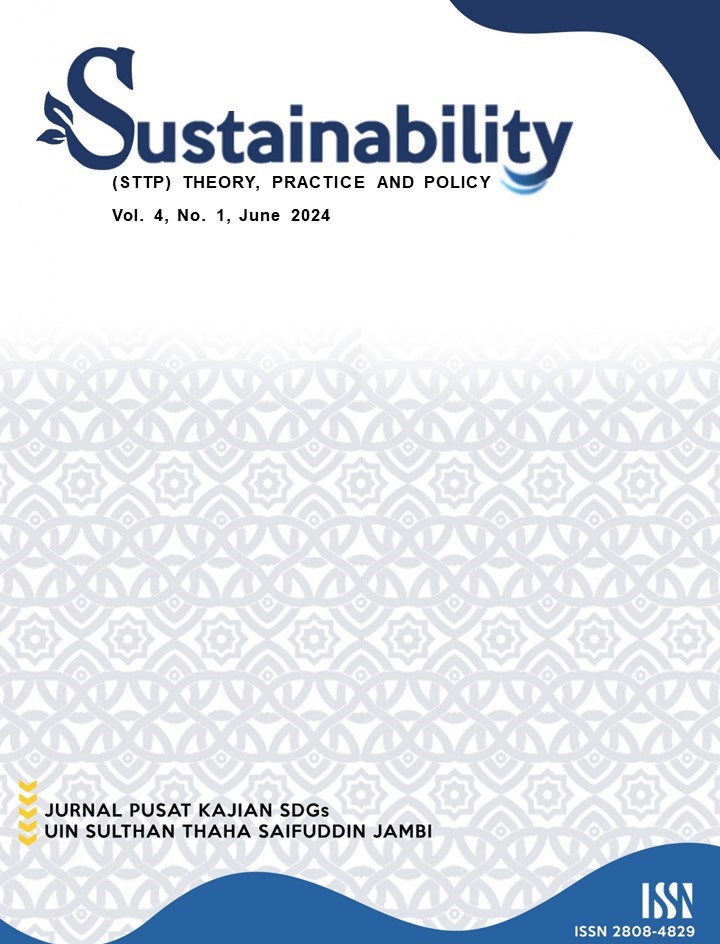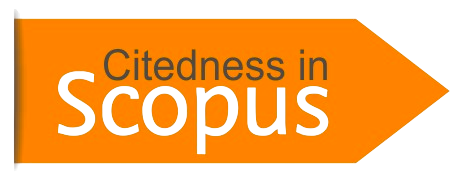Community Mitigation Climate Change at Household Waste Management
DOI:
https://doi.org/10.30631/sdgs.v4i1.2615Keywords:
Climate Change, Household Waste, Village Climate Program, Samarinda CityAbstract
Climate change is a concern in the world because of its threat to the environment. Household waste management can be done through mitigation to the community to reduce household waste, which causes methane gas emissions, climate change, and an increase in the volume of waste. This study aims to determine community mitigation in climate change in household waste management in Samarinda City and to determine community participation in implementing the climate village program in Samarinda City. This study is a descriptive study with a qualitative approach. The population in this study were all communities and ProKlim administrators in 5 research locations with purposive sampling and saturated sampling techniques with 35 informants. The sampling technique is interviews, observations, and documentation. The results of the study from 5 Proklims show that the community has carried out mitigation in their waste management to reduce carbon emissions and maintain their living environment. Forms of community mitigation include sorting and saving waste in waste banks in climate village groups. In addition, the community also reuses plastic waste that can be reused and makes compost from organic waste and recycles waste. Community participation in ProKlim is very supportive by participating in the activities, but some informants did not participate because ProKlim was not yet active.
References
Ainurrohmah, S., & Sudarti, S. (2022). Analysis of Climate Change and Global Warming that Occurs as a Critical Phase. Jurnal Phi Jurnal Pendidikan Fisika Dan Fisika Terapan, 3(3), 1. https://doi.org/10.22373/p-jpft.v3i3.13359 DOI: https://doi.org/10.22373/p-jpft.v3i3.13359
BMKG. (2022, June 1). Extream Climate Change. BMKG. https://www.bmkg.go.id/iklim/?p=ekstrem-perubahan-iklim
BPS. (2024). Amount of Waste Production in Samarinda City 2018 - 2023. https://samarindakota.bps.go.id/indicator/29/247/1/jumlah-produksi-sampah-di-kota-samarinda.html
Climate Village Program Implementation Guidelines, Pub. L. No. 19, KLHK (2012).
Dewi, S., Made, N., & Bunga, N. (2021). Analysis of Household Waste on the Impact of Environmental Pollution. GANEC SWARA, 15(2), 1159. https://doi.org/10.35327/gara.v15i2.231 DOI: https://doi.org/10.35327/gara.v15i2.231
Dhokhikah, Y., Trihadiningrum, Y., & Sunaryo, S. (2015). Community participation in household solid waste reduction in Surabaya, Indonesia. Resources, Conservation and Recycling, 102, 153–162. https://doi.org/10.1016/j.resconrec.2015.06.013 DOI: https://doi.org/10.1016/j.resconrec.2015.06.013
Faedlulloh, D., Irawan, B., & Prasetyanti, R. (2019). The superior climate village program (proklim) is based on community empowerment. Publisia: Jurnal Ilmu Administrasi Publik, 4(1). https://doi.org/10.26905/pjiap.v4i1.2364 DOI: https://doi.org/10.26905/pjiap.v4i1.2364
Fatma Rabia, S., Fadlil, F., Rahman, A. A., & Yulianto, A. (2022). Analysis of Organic Waste Management in Indonesia Based on Scopus Database 2(2) https://unimuda.e-journal.id/jurnalagitasi/article/view/3864/1629
Ma, B., Li, X., Jiang, Z., & Jiang, J. (2019). Recycle more, waste more? When recycling efforts increase resource consumption. Journal of Cleaner Production, 206, 870–877. https://doi.org/10.1016/j.jclepro.2018.09.063 DOI: https://doi.org/10.1016/j.jclepro.2018.09.063
Martitah, M., Sulistianingsih, D., Sumarto, S., & Adhi, Y. P. (2024). Legal Strategies in Household Waste Management in Villages. The Indonesian Journal of International Clinical Legal Education, 6(2), 183–208. https://doi.org/10.15294/ijicle.v6i2.6661
Nagong, A. (2021). Study on Waste Management by the Samarinda City Environmental Service Based on Samarinda City Regional Regulation Number 02 of 2011 Concerning Waste Management. Jurnal Administrative Reform, 8(2), 105. https://doi.org/10.52239/jar.v8i2.4540 DOI: https://doi.org/10.52239/jar.v8i2.4540
Rohma, N. N., Sari, N. O., Ditia, O. W., & Shakthi, K. S. (2023). Government Efforts to Reduce Plastic Waste in Tulungagung. Bureaucracy Journal: Indonesia Journal of Law and Social-Political Governance, 3(3). https://doi.org/10.53363/bureau.v3i3.327
Noventi, I. A. (2020). Problems in Community-Based Waste Management. JIAP, 6(3), 466–471. DOI: https://doi.org/10.21776/ub.jiap.2020.006.03.16
Qodriyatun, S. N. (2014). Improving Community Welfare Through Waste Management Based on Law No. 18 of 2008. Aspirasi, 5(1), 21–34. https://jurnal.dpr.go.id/index.php/aspirasi/article/view/450/347
Sutisno, A. N., Novianawati, N., & Azizah, D. (2021). The effectiveness of household waste management based on the waste alms concept by elementary school students. International Journal of Education and Humanities (IJEH), 1(4), 190–200. http://i-jeh.com/index.php/ijeh/index DOI: https://doi.org/10.58557/ijeh.v1i4.32
Tarigan, L. B., Rogaleli, Y. C., & Waangsir, F. W. F. (2020). Community participation in waste management. International Journal of Public Health Science (IJPHS), 9(2), 115. https://doi.org/10.11591/ijphs.v9i2.20380 DOI: https://doi.org/10.11591/ijphs.v9i2.20380














